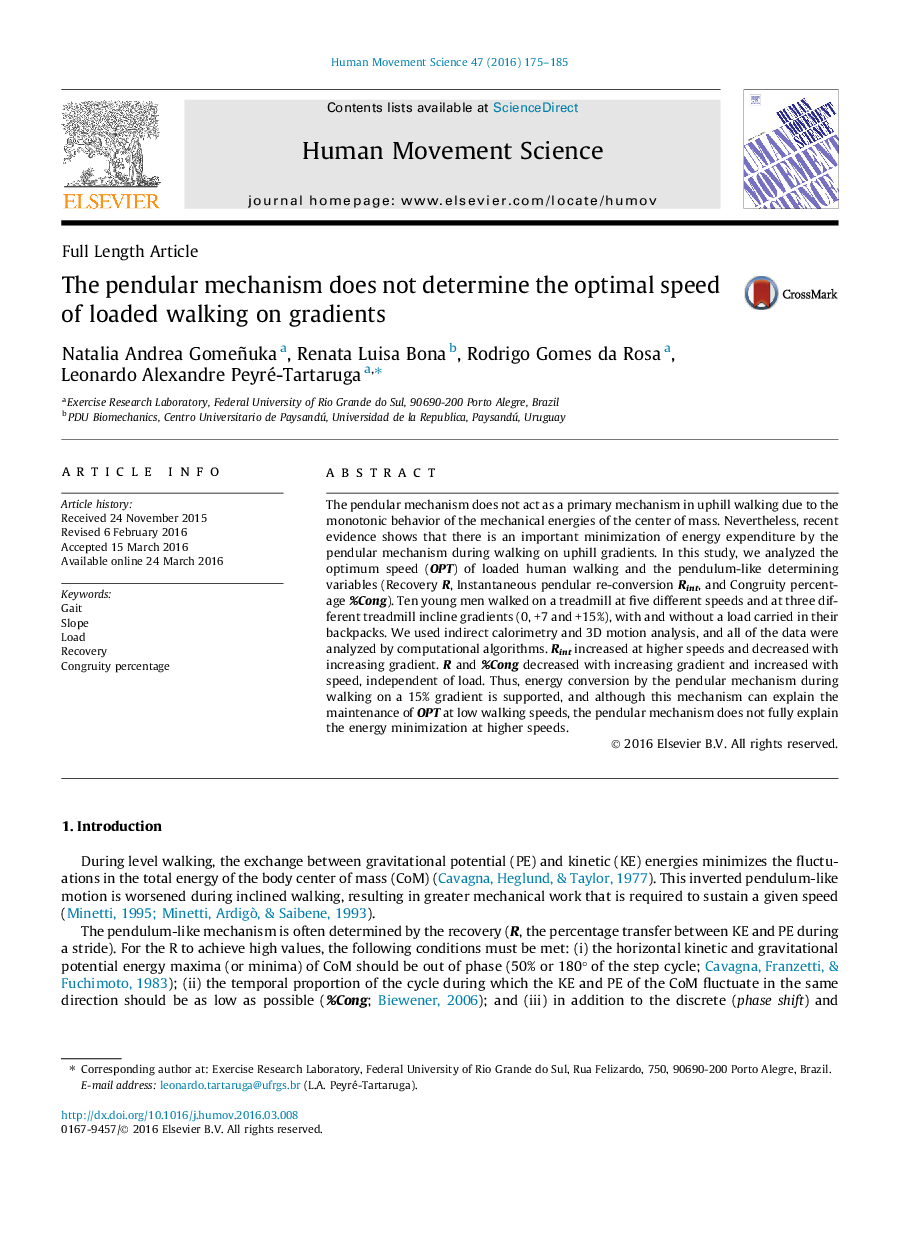| Article ID | Journal | Published Year | Pages | File Type |
|---|---|---|---|---|
| 7291504 | Human Movement Science | 2016 | 11 Pages |
Abstract
The pendular mechanism does not act as a primary mechanism in uphill walking due to the monotonic behavior of the mechanical energies of the center of mass. Nevertheless, recent evidence shows that there is an important minimization of energy expenditure by the pendular mechanism during walking on uphill gradients. In this study, we analyzed the optimum speed (OPT) of loaded human walking and the pendulum-like determining variables (Recovery R, Instantaneous pendular re-conversion Rint, and Congruity percentage %Cong). Ten young men walked on a treadmill at five different speeds and at three different treadmill incline gradients (0, +7 and +15%), with and without a load carried in their backpacks. We used indirect calorimetry and 3D motion analysis, and all of the data were analyzed by computational algorithms. Rint increased at higher speeds and decreased with increasing gradient. R and %Cong decreased with increasing gradient and increased with speed, independent of load. Thus, energy conversion by the pendular mechanism during walking on a 15% gradient is supported, and although this mechanism can explain the maintenance of OPT at low walking speeds, the pendular mechanism does not fully explain the energy minimization at higher speeds.
Related Topics
Life Sciences
Neuroscience
Cognitive Neuroscience
Authors
Natalia Andrea Gomeñuka, Renata Luisa Bona, Rodrigo Gomes da Rosa, Leonardo Alexandre Peyré-Tartaruga,
